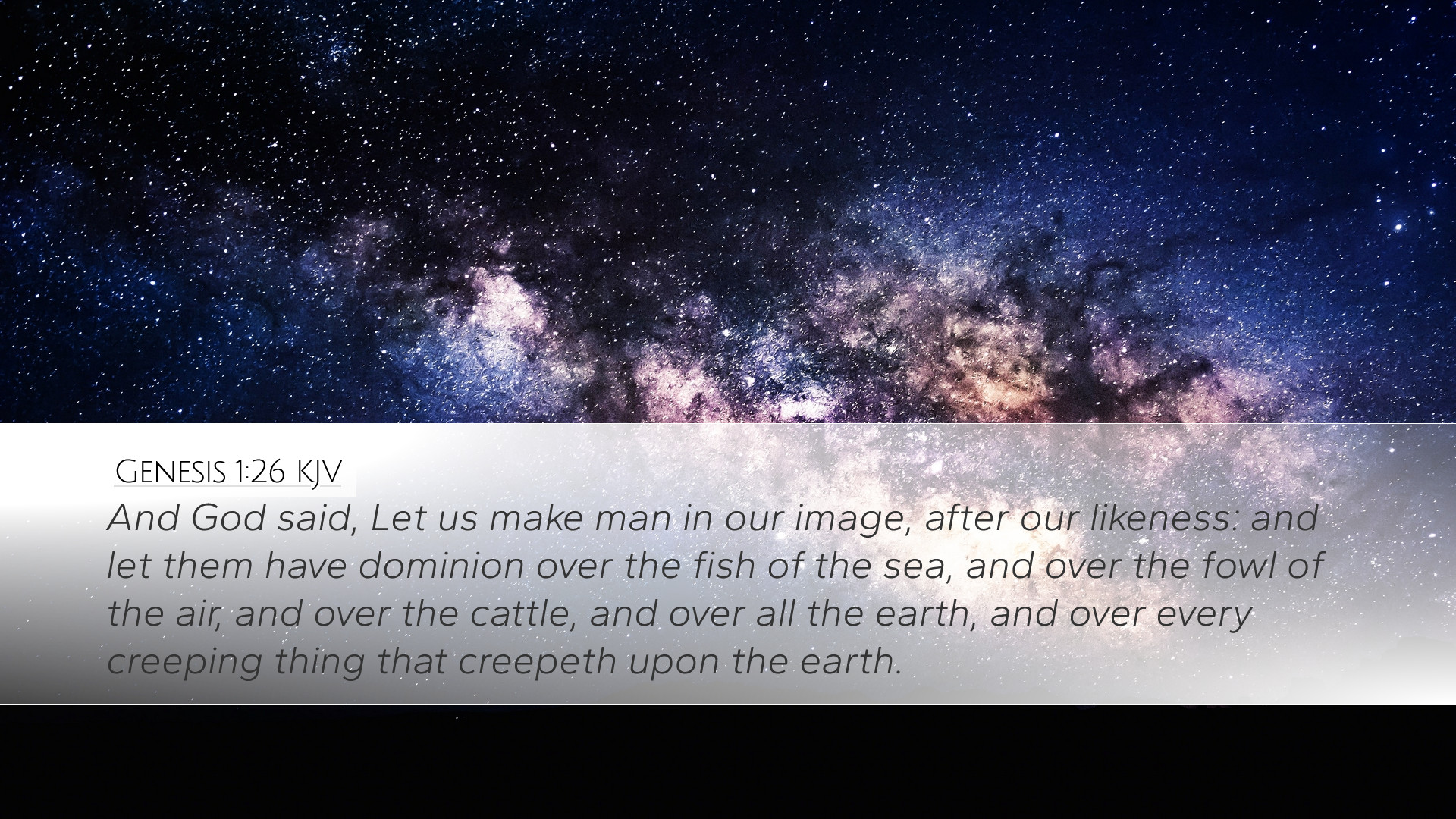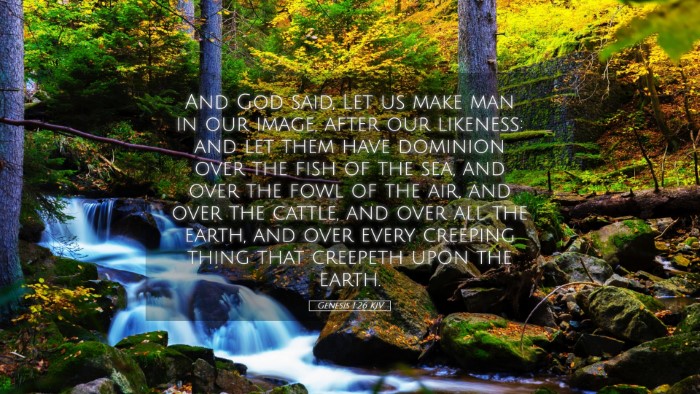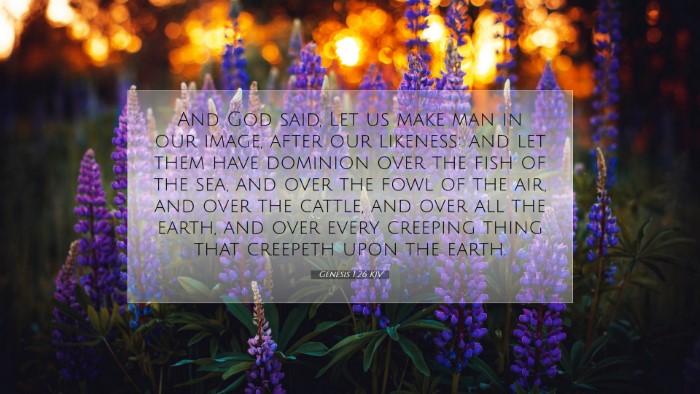Commentary on Genesis 1:26
Genesis 1:26 presents a pivotal moment in the biblical narrative where God deliberates on the creation of humanity: "And God said, Let us make man in our image, after our likeness." This verse carries profound implications for theology, anthropology, and our understanding of God's relationship with humanity. Considerations from various public domain commentaries shed light on this significant text.
The Divine Deliberation
Matthew Henry highlights the plural pronouns "us" and "our," suggesting a rich communal aspect within the Godhead, which some theologians see as a foreshadowing of the Trinity. Henry emphasizes that God's decision to create man was not impulsive but rather a thoughtful act of purpose. The phrase calls into question the nature of God, revealing the relational and communal aspect within His being.
Albert Barnes posits that the use of "us" suggests a counsel within the divine, demonstrating that the creation of mankind was a significant event in God’s plan. This collective decision showcases an intention that extends beyond mere creation to encompass the covenantal relationship which God would later establish with humanity.
Image and Likeness of God
The phrase "in our image, after our likeness" has elicited extensive theological discussion regarding the nature of man. Adam Clarke notes that this implies more than a physical resemblance; it suggests moral and spiritual qualities that align with God's nature. Humans are endowed with intellect, will, and the capacity for moral choice—traits that reflect God's character.
- Moral Agency: The likeness allows for genuine moral choices, which is central to the doctrine of free will.
- Rationality: Being made in God's image implies an inherent ability to reason and understand spiritual truths.
- Relationality: Just as God exists in relationships, humans are created to exist in connection with one another and with God.
The Authority of Humanity
In the same breath, the declaration of mankind's creation implies a special status. Matthew Henry notes that this verse underscores humanity's unique role in creation, as they are to have dominion over the earth. This authority is both a privilege and a responsibility.
- Dominion: As stewards of creation, humans are tasked with governing the earth in a way that reflects God’s character.
- Responsibility: This dominion is not a license for exploitation but a call to stewardship and care for the created world.
The Implications for Theology
Genesis 1:26 serves as a cornerstone for many theological perspectives. Albert Barnes particularly notes the implications for understanding sin and redemption. Since humanity bears God's image, the fall into sin radically alters this likeness, necessitating restoration through Christ.
The New Testament theology emphasizes that through Christ, the image of God is restored in believers (Colossians 3:10). This understanding is pivotal for pastors and theologians as it frames the discussion around the nature of salvation—a return to our intended purpose as image bearers of God.
Conclusion
Genesis 1:26 is not merely a historical account of creation but a profound declaration of humanity's identity and purpose. It articulates the depth of God's intent for His creation and challenges contemporary understandings of duty, ethics, and stewardship in light of being made in His image. For pastors, students, and theologians, this verse is a call to reflect on what it means to live as true image bearers of God in a world yearning for the light of His presence.


